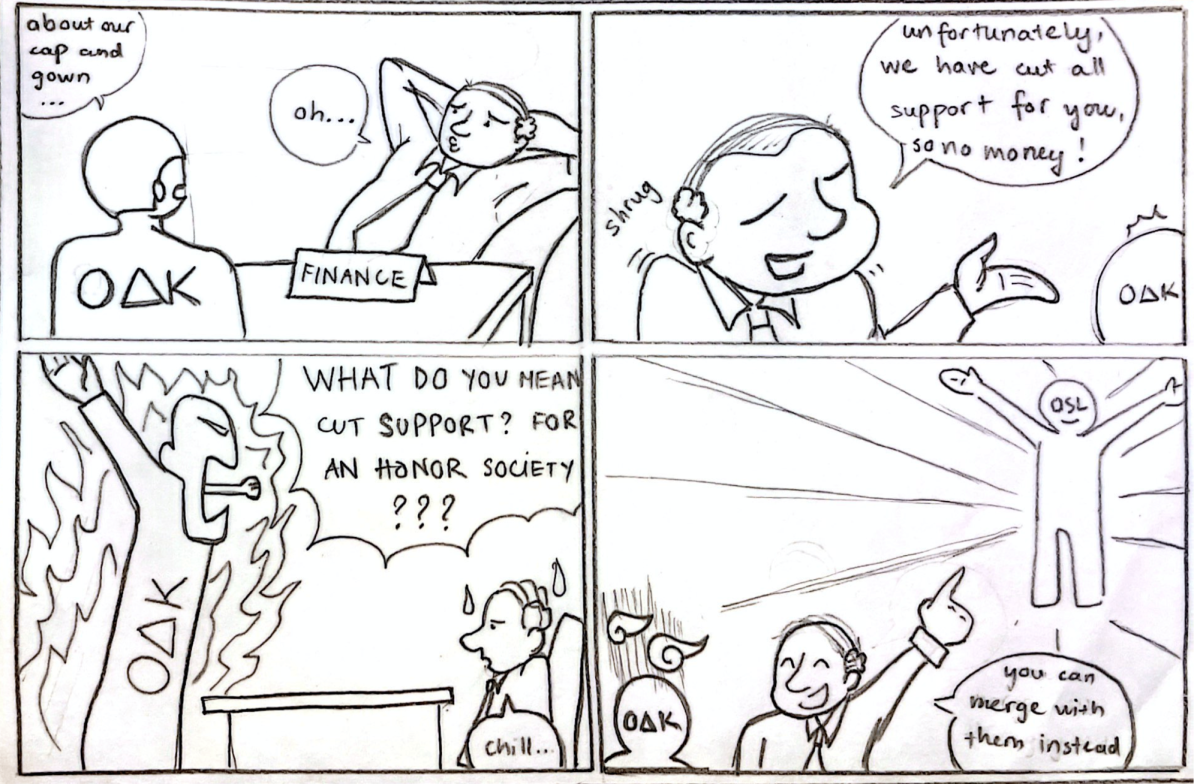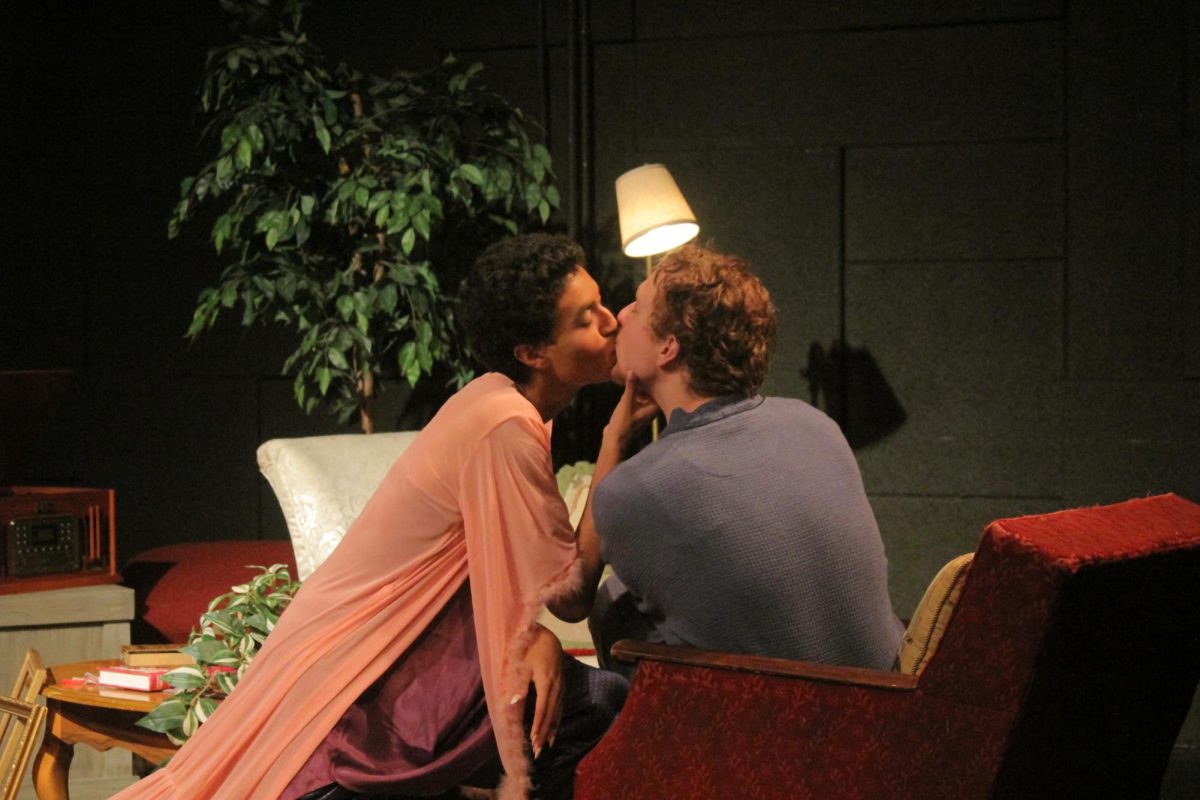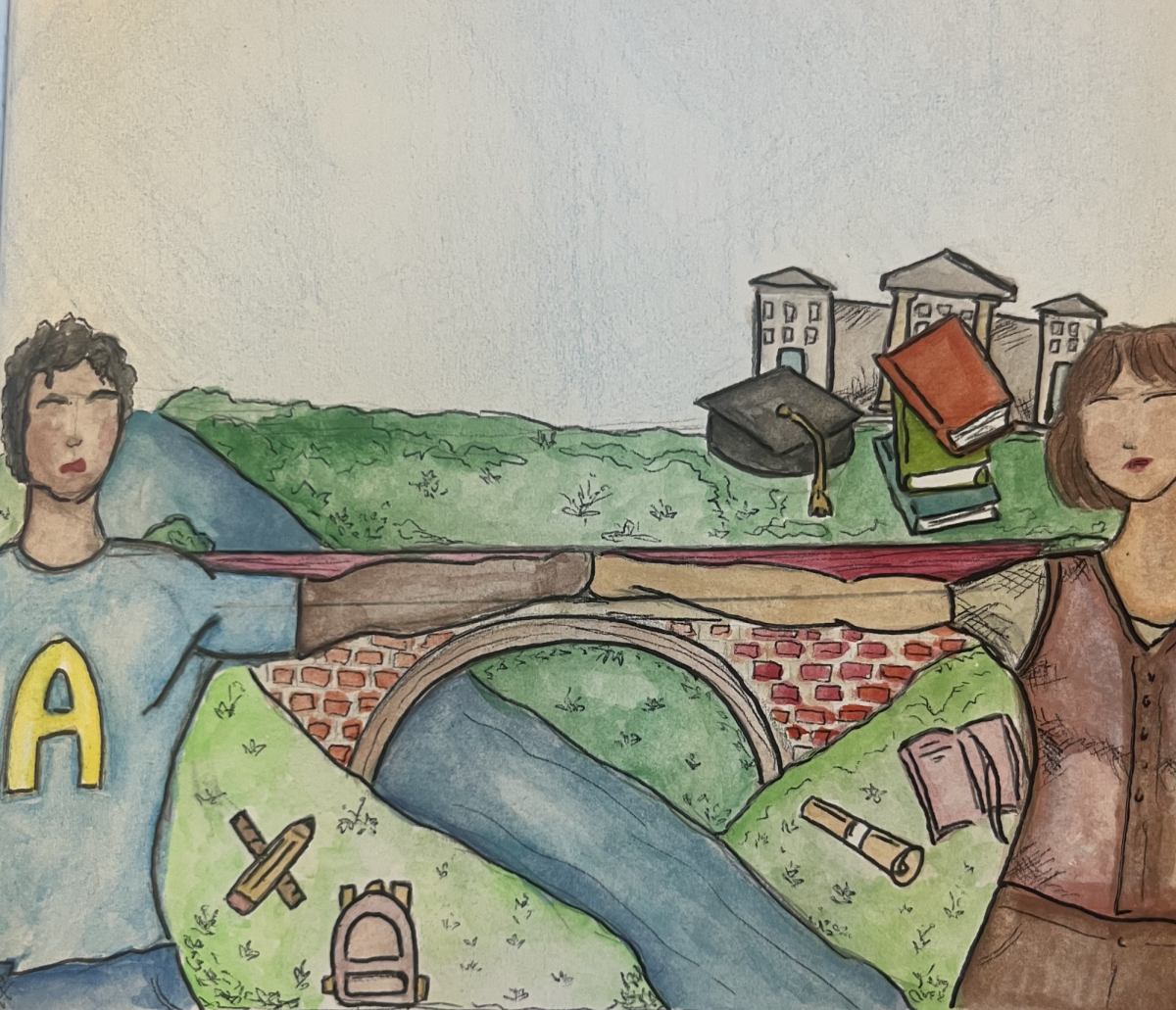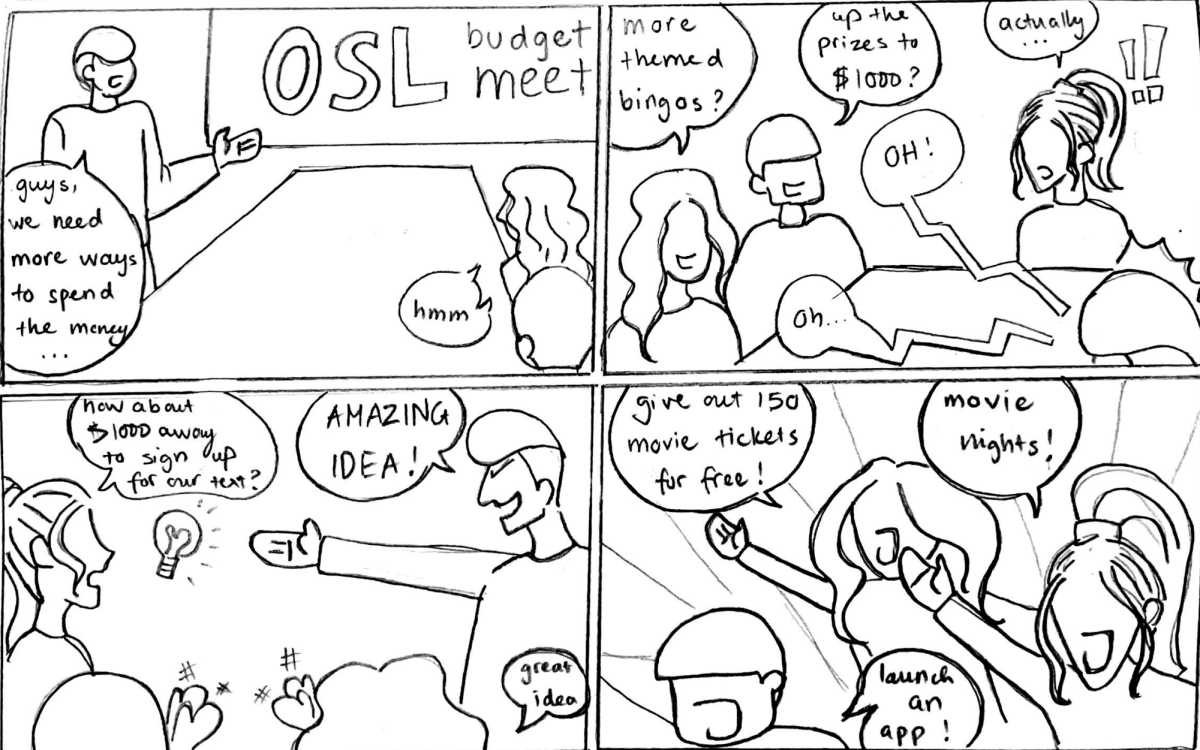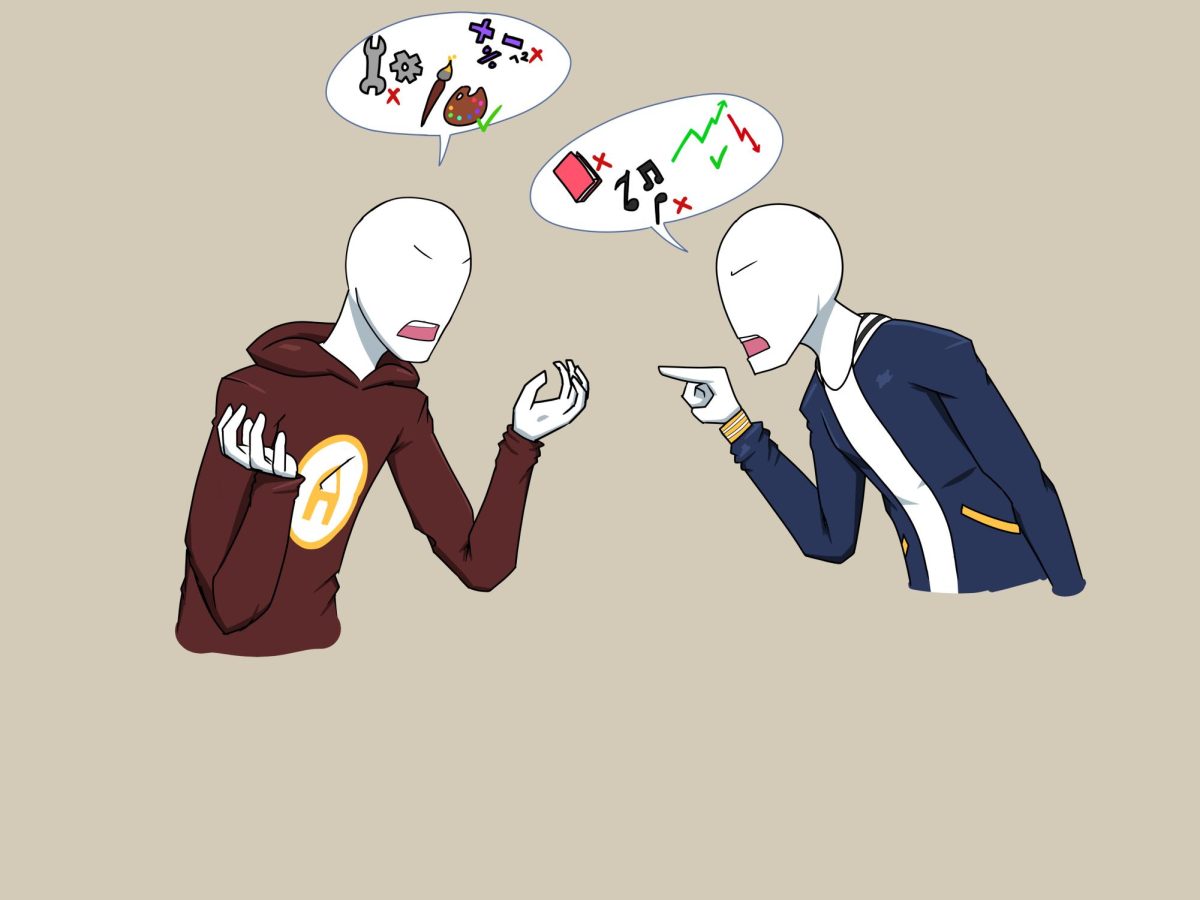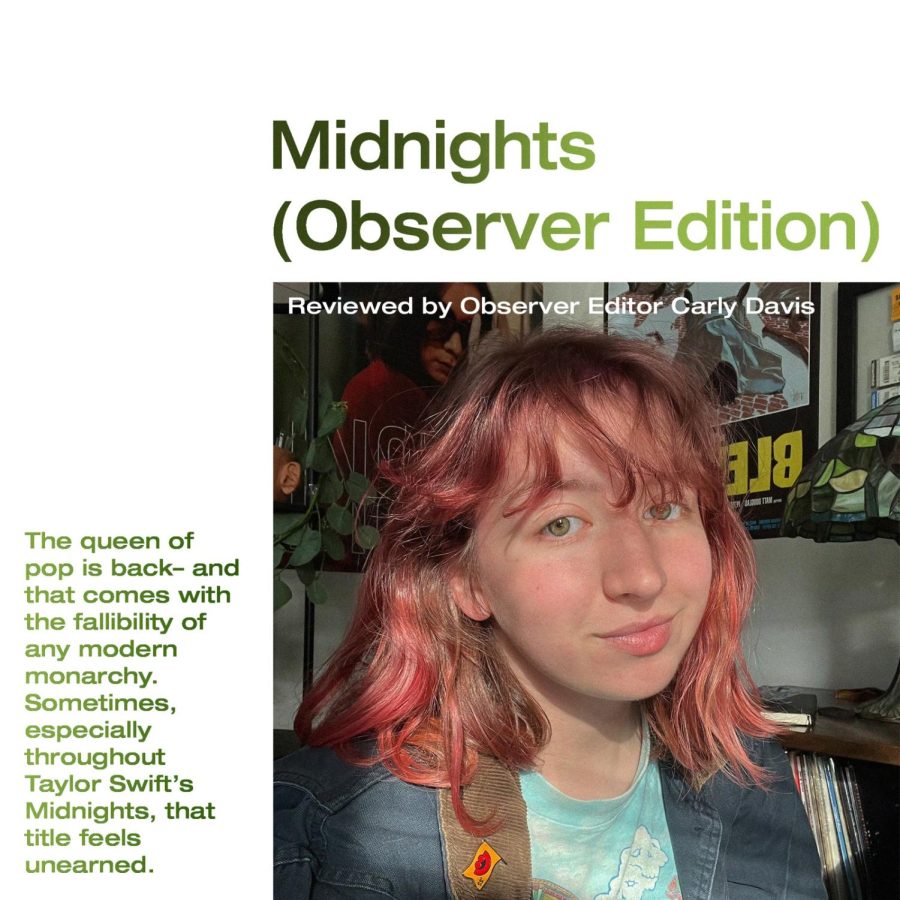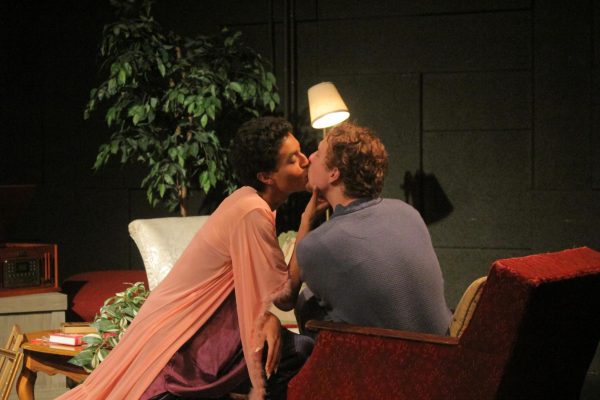Taylor Swift’s Midnights has me managing expectations
October 28, 2022
The queen of pop is back– and that comes with the fallibility of any modern monarchy. Sometimes, especially throughout Taylor Swift’s Midnights, that title feels unearned.
“Lavender Haze” opens the album with a generic pop bop that had me, someone whose pop intake is limited to MUNA and the occasional Harry Styles song, nodding my head.
“Lavender Haze” reminds us that Jack Antonoff is the (albeit overenthusiastic) master of the soft vocal overdub, with soft, breathy background vocals and harmonies that sound like fine film grain. It’s occasionally exhausting since Taylor has a genuinely lovely voice but often uses a gentler style that relies on overdubbing to have depth.
The album’s dedication to artificial drums is frustrating at times and pulls the listener away from the vintage utopia described in “Maroon.” Swift writes, “When the morning came/We were cleaning incense off your vinyl shelf/’Cause we lost track of time again.” In a song about the timeless relationship struggle of love going sour, the bridge’s synthetic, clicking drums and the plasticky quarter note beats on a muted snare throughout the whole track feels modern and out of place.
“Anti-Hero” has some lyrics that made me chuckle while listening. As a lyricist, Swift has always excelled at creating a character within each song while still allowing pieces of herself to shine through. We’ve seen it since her early work, although it got a little kitschy in the Reputation era. “Anti-Hero” gives us a lovably self-aware mess who describes specific instances of being the problem in a way that emulates Evermore completely independently of that more acoustic style.
And god, “Snow on the Beach” makes me miss “Evermore” and “Folklore”’s production. Aaron Dessner is a perfect contrast for Jack Antonoff and mellows out the Bleachers sound, and I find myself itching to hear his contribution to Midnights later in the album. “Snow on the Beach” takes Swift’s mellow, low range and covers it up with annoying artificial instrumentals and more synthetic drums. I don’t know where Lana del Rey is supposed to be, which is fine by me.
Some parts of Midnights, like “Midnight Rain” just aren’t for me. Synth, drum machine, vocal modulation and some touches of Moog-sounding synthesizer in the second verse do little for the song. The rhyme is nice and carries the vocal melody.
“Question…?” has similar low points. Someone take Antonoff off the board, he’s ruining my perfectly good song by adding gentle, inoffensive beats and minimal reverb.
The style occasionally facilitates high-energy moments that I could see myself dancing around to while cleaning my kitchen, which is why I stick around during the less interesting parts as these songs never tend to stay in the good moments for long.
I am not a die-hard Taylor Swift fan, I’m barely a casual fan. I don’t listen to “1989,” “Reputation” or “Lover,” having fallen off after “Red” and coming back for “Evermore” and “Folklore.” “Vigilante Shit” is a real disappointment in that way, since it seems to dip back into the Reputation’s faux-edgy style. I wish the Hot Topic by Taylor’s house would close.
Within the world of “Midnights,” a song like “Vigilante Shit” makes sense. In the middle of the night (in my dreams), anger feels like an overwhelming emotion. But the best thing to do is always go to sleep. Indulging in late-night bursts of emotions results in these immature ideas that seem far more like self-obsession than genuine anger and vengeance.
Take a song like “Better Than Revenge” and put it up against “Vigilante Shit.” The anger in “Better Than Revenge” is palpable. It sounds like a friend sharing some scathing gossip. It makes you want to punch a wall. “Vigilante Shit,” in comparison, is tired. It’s music for subtweeting someone from the comfort of your bed rather than doing anything substantial.
“Bejeweled,” then, is a welcome reprieve from a string of underwhelming songs. The lyrics are cute, the energy is high and the metaphor works. “Labyrinth” is much the same but with more mellow energy, and it is maybe one of the album’s best-sounding songs. But I wish Antonoff was trapped in a box with an acoustic guitar since he seems to have forgotten how to make music like a human being. Like a lot of these songs, the chorus is my least favorite part, since it is so overproduced and lacks any real meaning.
I’m not too bothered by the silly lyrics on “Karma,” and wish it leaned more toward bubblegum pop. It recalls “London Boy”’s lyrical and vocal goofiness. But in an album of either peaceful, pleasant-enough songs or more grating, simply written tracks, it doesn’t grab my attention.
The standout song on the album for me is “Sweet Nothings.” Her writing is more solid here than other tracks with a simple enough concept. The reference to boyfriend Joe Alwyn’s filming location of Wicklow, Ireland comes through and grounds the song in a real relationship, real emotion. The domesticity built in the chorus is forwarded by Alwyn remarking, “What a mind,” to Swift about her writing.
I had been hopeful that “Folklore” and “Evermore” would have more of a lasting effect on her writing and style. Instead, it builds on the pop sound she developed on “1989” and has similar pitfalls to “Lover” and “Reputation.”
There are high-quality moments that go beyond clean production, and notable favorites, for me, are “Maroon” and “Sweet Nothings.” But as a whole, “Midnights” is dragged down by Swift and Antonoff’s tendency to create simple and uninteresting arrangements that leave Swift’s pop melodies to stand on their own and consequently fall flat.

